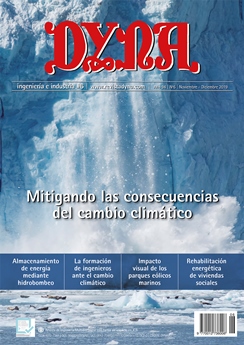DECARBONISATION OF THE PUBLIC ADMINISTRATION BY THE ELECTRIFICATION OF URBAN BUSES. CASE STUDY THE CITY OF VITORIA
Keywords:
Descarbonización, Administración pública, electrificación, transporte, autobuses urbanosAbstract
The fight against climate change requires an urgent decarbonisation of the global economy. In the Basque Country, different economic sectors have jointly reduced their emissions in the last years. However, transport has increased their emissions, making it clear that current policies are not allowing to reach the targets set for this sector. Public sector plays a key role in the fight against climate change and must lead in the decarbonisation task. In this work, electrification is considered as the most efficient tool to decarbonize the vehicle fleets of public Administrations and thus contributing to the decarbonisation of the public sector. To this end, an economic, energy and environmental cost-benefit analysis has been carried out for the electrification of the urban bus fleet in Vitoria of the company Tuvisa. The main result of the study, is that electrical technology is more competitive than conventional technology, provided that the partial refund of the hydrocarbon tax for public Administrations is abolished and the environmental costs due to fossil fuels are internalised. Three main measures are identified to advance in vehicle electrification: promoting the joint purchase of electric vehicles in order to reduce initial costs; internalising external costs due to transport activities; and promoting green public purchasing. The implications and recommendations resulting from this particular case can also be extrapolated to other cities seeking to promote electrification of public transport.Downloads
Published
2019-11-01
Issue
Section
ARTICULOS

